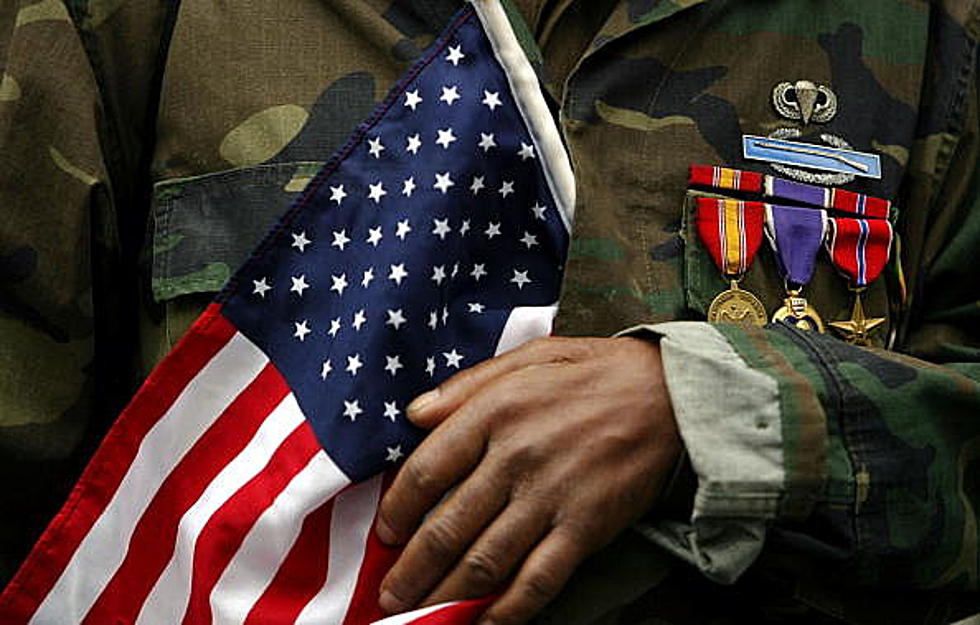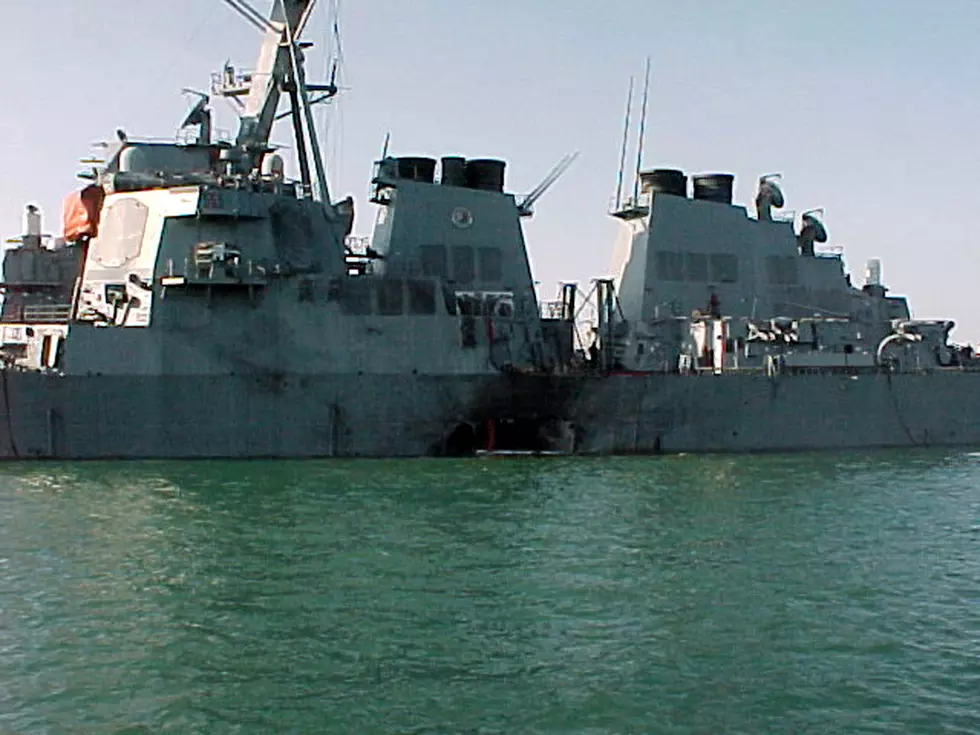
American Warship Destroys Iranian Drone in Strait of Hormuz
By DARLENE SUPERVILLE and ROBERT BURNS Associated Press
WASHINGTON (AP) — A U.S. warship on Thursday destroyed an Iranian drone in the Strait of Hormuz after it threatened the ship, President Donald Trump said. The incident marked a new escalation of tensions between the countries less than one month after Iran downed an American drone in the same waterway and Trump came close to retaliating with a military strike.
In remarks at the White House, Trump blamed Iran for a "provocative and hostile" action and said the U.S. responded in self-defense.
He said the Navy's USS Boxer, an amphibious assault ship, took defensive action after the Iranian aircraft closed to within 1,000 yards of the ship and ignored multiple calls to stand down.
"The United States reserves the right to defend our personnel, facilities and interests and calls upon all nations to condemn Iran's attempts to disrupt freedom of navigation and global commerce," Trump said.
The Pentagon said the incident happened at 10 a.m. local time Thursday in international waters while the Boxer was transiting the waterway to enter the Persian Gulf. The Boxer is among several U.S. Navy ships in the area, including the USS Abraham Lincoln, an aircraft carrier that has been operating in the nearby North Arabian Sea for weeks.
"A fixed-wing unmanned aerial system approached Boxer and closed within a threatening range," chief Pentagon spokesman Jonathan Hoffman said in a written statement. "The ship took defensive action against the UAS to ensure the safety of the ship and its crew."
The Iranians and Americans have had close encounters in the Strait of Hormuz in the past, and it's not unprecedented for Iran to fly a drone near a U.S. warship.
In December, about 30 Iranian Revolutionary Guard vessels trailed the USS John C. Stennis aircraft carrier and its strike group through the strait as Associated Press journalists on board watched. One small vessel launched what appeared to be a commercial-grade drone to film the U.S. ships.
Other transits have seen the Iranians fire rockets away from American warships or test-fire their machine guns. The Guard's small fast boats often cut in front of the massive carriers, running dangerously close to running into them in "swarm attacks." The Guard boats are often armed with bomb-carrying drones and sea-to-sea and surface-to-sea missiles.
Thursday's incident was the latest in a series of events that raised U.S.-Iran tensions since early May when Washington accused Tehran of threatening U.S. forces and interests in Iraq and in the Gulf. In response, the U.S. accelerated the deployment of the Lincoln and its strike group to the Arabian Sea and deployed four B-52 long-range bombers to the Gulf state of Qatar. It has since deployed additional Patriot air defense missile batteries in the Gulf region.
Shortly after Iran shot down a U.S. Navy drone aircraft on June 20, Trump ordered a retaliatory military strike but called it off at the last moment, saying the risk of casualties was disproportionate to the downing by Iran, which did not cost any U.S. lives.
Iran claimed the U.S. drone violated its airspace; the Pentagon denied this.
Iran's foreign minister, Mohammad Javad Zarif , said Thursday that Iran and the U.S. were only "a few minutes away from a war" after Iran downed the American drone. He spoke to U.S.-based media on the sidelines of a visit to the United Nations.
Zarif also blamed Washington for the escalation of tensions.
"We live in a very dangerous environment," he said. "The United States has pushed itself and the rest of the world into probably the brink of an abyss." Zarif accused the Trump administration of "trying to starve our people" and "deplete our treasury" through economic sanctions.
Earlier Thursday, Iran said its Revolutionary Guard seized a foreign oil tanker and its crew of 12 for smuggling fuel out of the country, and hours later released video showing the vessel to be a United Arab Emirates-based ship that had vanished in Iranian waters over the weekend.
The announcement cleared up the fate of the missing ship but raised a host of other questions and heightened worries about the free flow of traffic in the Strait of Hormuz, one of the world's most critical petroleum shipping routes. One-fifth of global crude exports passes through the strait.
___
Associated Press writers Ian Phillips in New York and Aya Batrawy in Dubai, United Arab Emirates, contributed to this report.
More From KMMS-KPRK 1450 AM








![[POLL] How Quickly Will You Return to Your Normal Lifestyle?](http://townsquare.media/site/8/files/2014/05/474469171.jpg?w=980&q=75)
